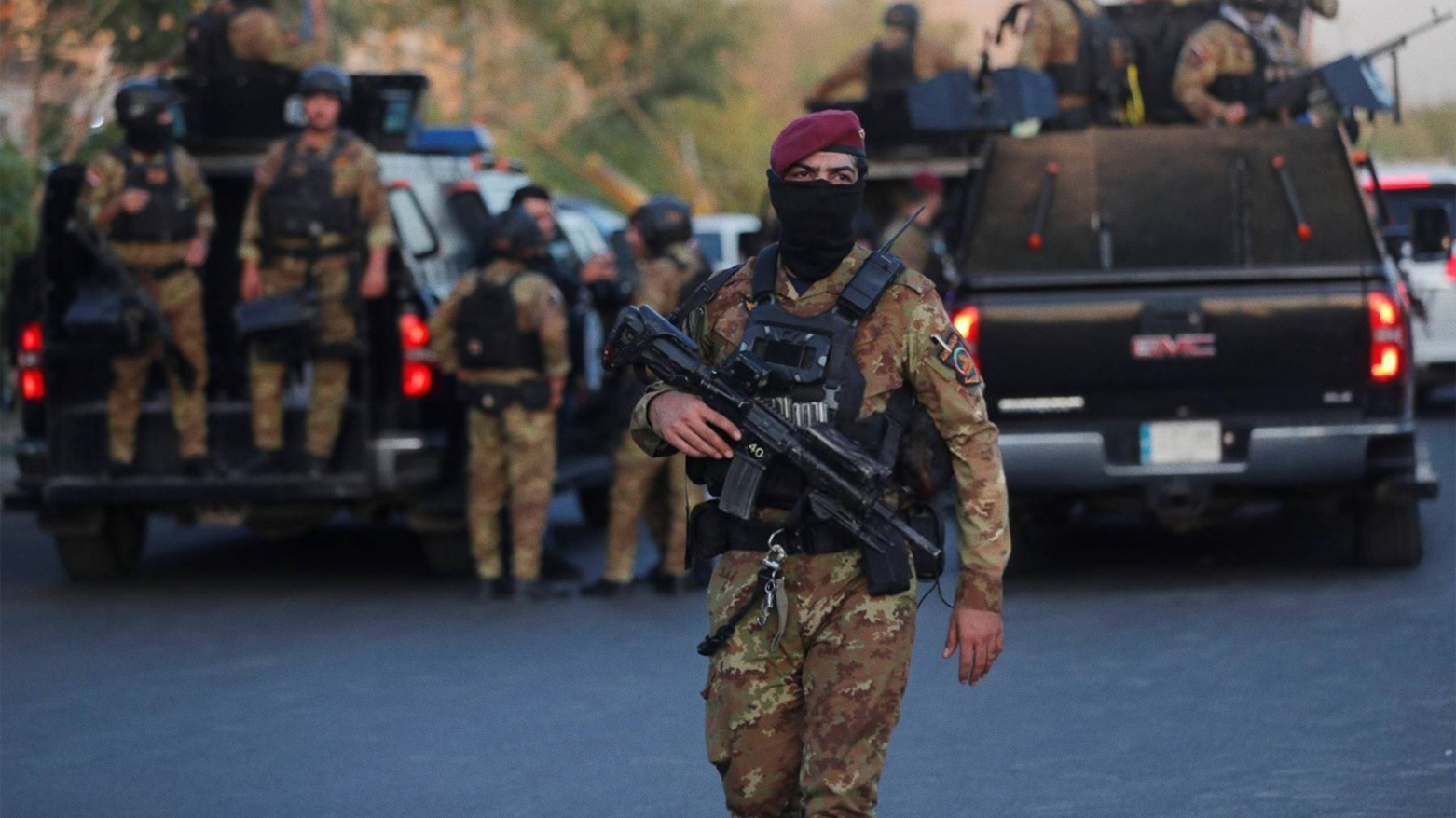Foreign Strike on Militias 'Highly Likely,' Warns Iraqi Expert
A foreign military strike on militias in Iraq is "highly likely," warns expert Mukhled Hazim, amid continued drone attacks on Kurdistan and U.S. interests. Analysts say Baghdad’s failure to rein in armed groups could trigger external intervention.

ERBIL (Kurdistan24) – A foreign military strike against armed groups in Iraq is now “highly likely” and may be the “only way to control the situation,” an Iraqi security and military expert warned on Monday, as the Kurdistan Regional Government (KRG) demanded that “limits must be set” for the militias responsible for a relentless wave of drone attacks.
The stark prediction from Mukhled Hazim, an expert on security and military affairs, adds to a growing chorus of analysts forecasting a kinetic response to the ongoing assaults on the Kurdistan Region’s energy infrastructure and American interests. Hazim asserted that while the Iraqi government is making efforts, the failure to rein in these groups has created conditions for external intervention.
“There are fears of an attack on armed groups,” Hazim told Kurdistan24. “It is expected that we will face an attack by a foreign and international actor. This is the only way to control the situation, as happened previously with Hezbollah, which Lebanon was unable to control, and then we saw what happened with a foreign attack.”
Drawing parallels to interventions against other non-state actors in the region, he added, “Undoubtedly, Syria, Hamas, and the Houthis also faced such attacks. After these events, the American letter, and the US embassy's message, it is highly likely that force will be used in the coming days.”
His assessment echoes that of Iraqi security expert Ahmed Sharif, who recently told Kurdistan24 that the militias made a grave miscalculation by attacking energy sources, framing it as a “threat to global security” that would likely provoke a U.S. response. Sharif stated that the origin of the drones is clear to security officials, as is who supplied them to the armed groups. He argued these attacks violate promises made by Prime Minister Mohammed Shia al-Sudani’s government to Washington to protect shared strategic interests.
As these warnings mounted, KRG Interior Minister Rebar Ahmed on Monday called for decisive action against the perpetrators. “Limits must be set for these groups, and they must stop threatening and disrupting the peace and stability of the Kurdistan Region,” he stated at a press conference. Ahmed announced the KRG’s full cooperation with a federal investigative committee led by Iraqi National Security Advisor Qasim al-Araji.
“Based on the directive of Prime Minister Masrour Barzani, institutions have been instructed to provide whatever is necessary to facilitate the committee's work, including available documents and information, so that limits can be set on these threats and these dangers can be brought to an end, as these groups have overstepped their bounds and these actions must not be repeated,” Ahmed affirmed.
The developments unfold against a backdrop of escalating international pressure and a sustained campaign of aggression. On Monday morning, the Kurdistan Region’s Counter-Terrorism Directorate (CTD) confirmed another bomb-laden drone crashed in Erbil’s Khabat district, the latest in over 20 such attacks since early July.
The persistent strikes have triggered sharp reactions in Washington. On Tuesday, U.S. Representative Joe Wilson declared his intent to introduce legislation to prohibit U.S. funding to Iraq, accusing Baghdad of financing “terrorist militias” that attack the Kurdistan Region. He also called for the groups to be officially designated as terrorist organizations.
This political pressure aligns with high-level diplomatic engagement. U.S. Secretary of State Marco Rubio recently warned Prime Minister al-Sudani that a pending bill to institutionalize the Popular Mobilization Commission (PMC) would entrench “Iranian influence and armed terrorist groups.” Former Iraqi Ambassador to the UN, Feisal al-Istrabadi, has cautioned that continued attacks and the empowerment of militias are testing American patience and could lead to direct U.S. action and sanctions.
Other former U.S. officials have been even more blunt. Joe R. Reeder, a former U.S. Under Secretary of the Army, recently called the attacks a “lethal, fatal mistake” and forecasted “very, very severe” consequences, including both military strikes and sanctions.
The KRG has long criticized Baghdad for what it terms an “evasion of responsibility” and a “cover-up” regarding the security violations. This perceived inaction from the federal government has fueled the expert predictions that an external, rather than internal, force may ultimately be the one to respond to the militia threat.
